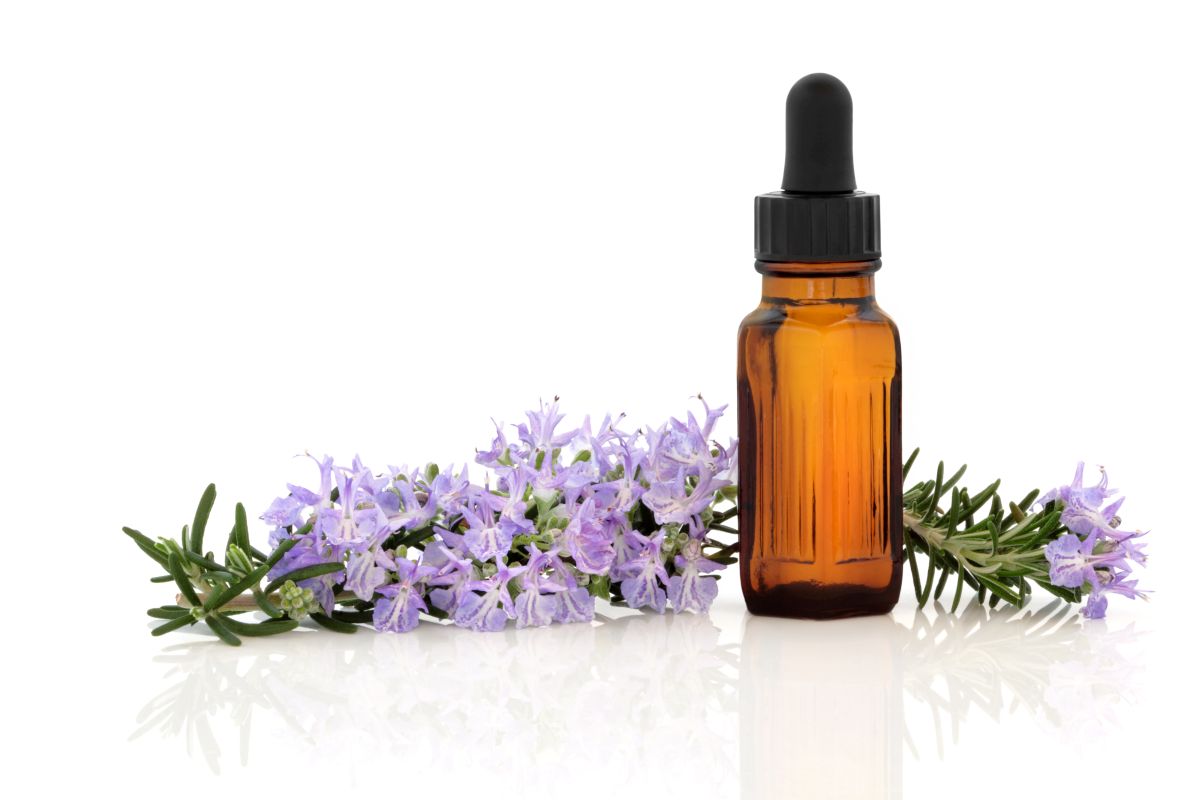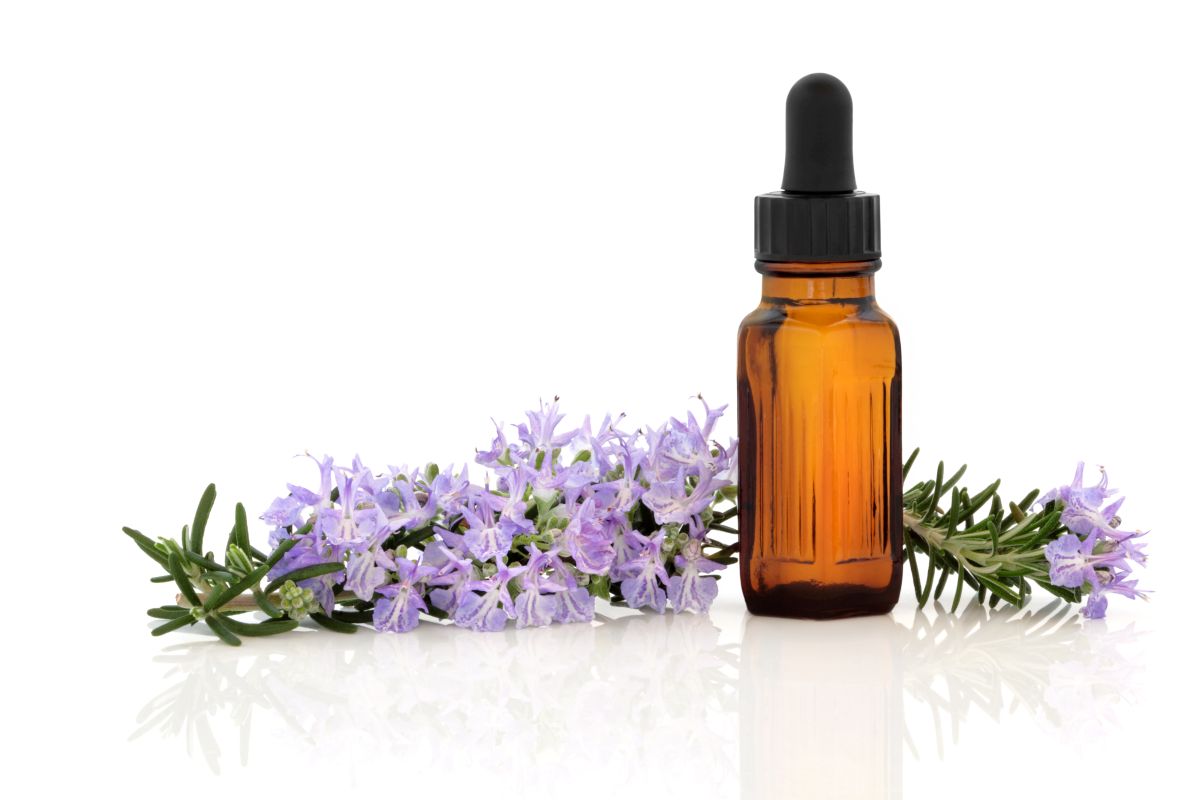Learn about brain health and nootropics to boost brain function
Delightful ways to benefit from wonder essential oil – Rosemary


Rosemary is a fragrant evergreen herb native to the Mediterranean. It is used as a culinary condiment, to make bodily perfumes, and for its potential health benefits. The herb has been hailed since ancient times for its medicinal and therapeutic properties. Studies confirm that rosemary is rich in antioxidants and contains natural anti-microbial properties.
Rosemary oil is extracted from rosemary herb through cold-pressing and steam distillation methods. These techniques require extensive experience and the use of complex apparatus. If you want to extract it at home, you can follow a simple procedure that uses low heat on a gas stove. All you require is grape seed oil and dried rosemary leaves.
How to make rosemary oil at home
Dry out fresh rosemary leaves in a warm, dark place for several hours or till the herb has lost most of its moisture, otherwise the essential oil will become contaminated with mold and spoil. Strip the dried leaves from the woody stalk. Take a double boiler. Fill the bottom vessel with water and put three to four ounces of rosemary leaves in the upper vessel. Pour two cups of grape seed oil in upper vessel to cover the rosemary leaves. Simmer on low heat for three hours. Turn off flame. Strain the oil into a clean sterilized glass bottle. Seal and set aside in a cool, dark place.
Rosemary essential oil is popularly used in aromatherapy and massage treatments since it is believed to relieve stress and improve memory and concentration. This oil is also promoted for its ability to relieve pain, which is why it is widely used in treating headaches, muscle pains and even arthritis. High-quality rosemary oil has analgesic, antibacterial, anticancer, ant catarrhal, antifungal, anti-infection, anti-inflammatory, antioxidant and expectorant properties.
This essential oil has a variety of health benefits with many of its potential offerings:
Aids digestion: Rosemary oil helps stimulate appetite. It can detoxify liver and help regulate digestive process. It is beneficial for relieving flatulence, constipation, stomach cramps and bloating. Rub a few drops of diluted rosemary essential oil onto the stomach to help with digestion.
Relieves pain: Massage the affected area with this oil and say bye to headaches, muscle pains and even arthritis. You can also add this oil to vapour baths for the treatment of rheumatism. It is a good way to address pain from sprains and joint aches. Combine a couple drops each of rosemary and peppermint oil with a teaspoon of coconut oil. Massage this concoction on the problem area for a few minutes to relieve the pain. To expel the phlegm from chest, just rub a couple of drops between your palms and cup them over your mouth and nose for a couple of minutes.
Boosts immunity: The simultaneous massage and inhalation of rosemary essential oil can support your immune system and help you fight off diseases linked to free radicals.
Relieves anxiety and stress: Rosemary essential oil decreases the level of cortisol, one of the hormones responsible for increasing stress. Inhaling rosemary oil for five minutes significantly reduces cortisol levels present in the saliva, potentially decreasing the dangers of chronic stress.
Cures respiratory problems: Smell the oil to provide relief from sore throat, congestion and treat respiratory allergies, colds and flu. Its antiseptic action also makes rosemary oil useful for respiratory infections. Due to its antispasmodic effect, it is also used in the treatment of bronchial asthma. Add five drops of rosemary oil to your room diffuser or vapouriser. The pleasant aroma will help cure the problem.
Improves blood circulation: The topical use of rosemary oil can improve blood circulation in that area which could in turn, speed up wound healing, relieve pain, aid rapid blood clotting and promote hair growth and skin glow.
Helps fight cancer: A component of rosemary oil has shown promising results in fighting cancer. It has shown to inhibit the spread of liver carcinoma and slow down the growth of tumors. The anti-cancer effect of rosemary oil has been found on colon, pancreas, breast, prostate, cervical, bladder, ovarian cancer and leukemia.
Spreads lovely fragrance: Rosemary oil emits a lovely unmatched fragrance that is extremely used in room fresheners, diffusers and scented candles to remove bad odours. It is also used in cosmetics, scented bath products and perfumes.
Prevents tooth decay: Being antibacterial, rosemary essential oil helps prevent cavities, gingivitis, and plaque build-up. It even gets rid of the bacteria that takes root in your tooth cavities and is a major cause of tooth decay. Mix half a teaspoon of rosemary oil in one cup of distilled water. It works as an excellent mouthwash.
Boosts healthy hair: This oil gives thicker locks and helps treat dandruff. It stimulates hair growth and treats alopecia. Add a few drops to a tablespoon of castor oil and two tablespoons of coconut oil and massage it into your hair.
Boosts healthy skin: The topical application of rosemary oil helps reduce inflammation caused by acne. It improves blood circulation, thus giving you glowing skin. It combats sun damage and free radical damage. This oil tightens skin to combat signs of aging.
Build-up brain: Rosemary essential oil can increase focus and sharpen concentration, making it a powerful brain booster. It improves memory and can renew energy levels.
Acts as wonderful mosquito repellent: Rosemary oil contains limonene and camphor that works wonder in repelling all sorts of mosquitoes and insects.
Besides providing a range of mental and physical health benefits, rosemary essential oil can cause adverse reaction because of all the volatile and potent chemicals it is composed of. So, enlighten yourself on the cautions before using it. This oil should always be diluted with a carrier oil before using topically. Test it on a small area of skin before use to check the skin sensitivity. Pregnant and breast feeding women should not use this oil as it can affect the fetus or lead to miscarriage. Also if you want to use it for children, consult a doctor first. Using this oil to treat a chronic disease like Alzheimer’s disease without consulting a doctor can hold serious consequences. So it is better to consult a doctor before using this essential oil for any purpose.



Click here to view full article